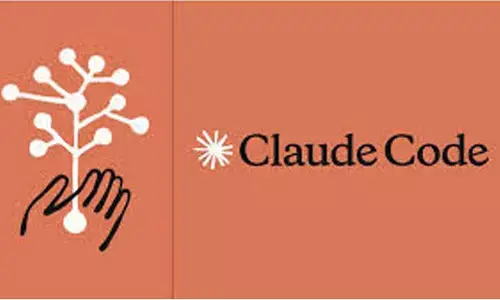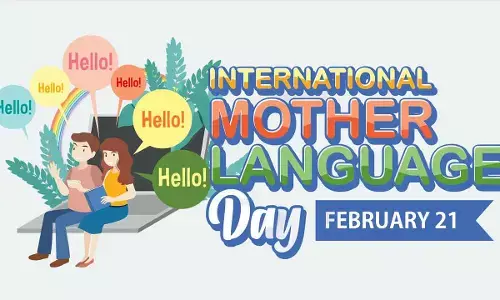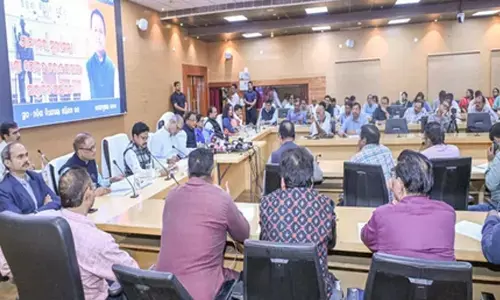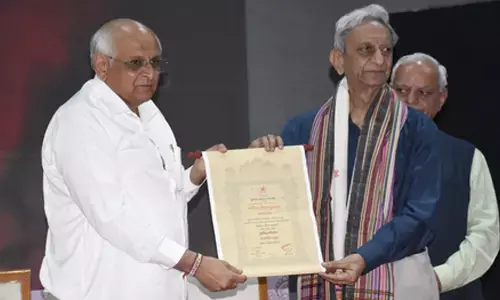Digital Age: Effect of digitisation on careers

Digital is the most commonly heard term today, everyone knows the term but what does Digital mean? Simply put all devices use a series of signals in the form of 1 (one) and 0 (zero) all signals go in this form which are then decrypted and shown on the screens of your devices e.g. Desktop Computers, Laptops, and Mobile devices.
Digitalized sectors open great career opportunities for the Youth, and so do the sectors that facilitate it. Do you remember what life was like when smart phones didn't exist? How about Ola/Uber cab services? Or ordering your food and doing shopping online?
If we rewind back 10 years of our lives, we would realize things have changed a lot. Science and Technology have brought about remarkable changes that may have been unthinkable just a few years back. And they keep making our lives simpler and faster.
The latest and most powerful of these is the impending launch of the fifth generation (5G) wireless network, which can handle 1,000 times more data volume than the systems in place today
Many experts believe that we are now in the early stages of the Fourth Industrial Revolution, an era combining Digital, Physical and Biological systems in a way never seen before. Virtual Reality (VR), Augmented Reality (AR), Artificial Intelligence (AI) and robotics are changing the way that we live and work and the rapid pace of change is disrupting almost every industry in every Country.
So with every industrial revolution, you do have displacement of jobs and new jobs get created. From past few years we have observed there has been an obsession about job losses: the effects of automation are questioned, the process of digitization is blamed? But, why?
We need to understand the change will be dramatic, but it will not be catastrophic. Jobs in industries such as IT, BPOs and financial services are not about to disappear, they are simply about to change.
Whilst technological advancements are undoubtedly increasing productivity; concerns over job losses due to automation are rife. However, for students equipped with the correct skills there is no dearth of opportunities
As technology evolves, it's become clear that our Education systems are now preparing people for the opportunities that 5G and other Fourth Industrial Revolution breakthroughs will present. But the challenge for Schools is how to prepare them well or make them job ready?
According to a recent report , "Intelligent automation is expected to boost the importance of both education related to STEM (science, technology, engineering and mathematics) and of so-called soft skills, which allow workers to trade on their uniquely human capabilities.
First let's understand what digitisation means?
Digitization is the process of converting analog signals or information of any form into a digital format that can be understood by computer systems or electronic devices. The term is used when converting information, like text, images or voices and sounds, into binary code.
What does digitization mean to you? This is an important question! In simple terms, Digitization means getting collections data into digital formats that promote easy discovery, access, and use.
Effect of digitisation
We are on the cliff of what the World Economic Forum calls the Fourth Industrial Revolution. Artificial intelligence. Automation. Ubiquitous, mobile supercomputing. Intelligent robots. Self-driving cars. Neuro-technological brain enhancements. Genetic editing.
This revolution brings with it exciting possibilities, new solutions to global challenges, and employment opportunities for jobs that have yet to be invented. Combined with climate change and rapid global population growth this Century is the most challenging that our species has ever faced. Governments, Educators and Parents alike must ask the question about how they can prepare present and future generations to thrive in this transforming world.
Jack Ma, founder of the Alibaba Group, "We cannot teach our kids to compete with machines" But things don't need to be so bleak. The reality is that the jobs of the future will be the ones that machines can't do. This is great news because it means we can automate the work and humanize the jobs.
The key areas where humans beat machines thatare key to future job creation:
Creative Endeavour's, everything from scientific discovery to creative writing and entrepreneurship Social interaction, robots just don't have the kind of emotional intelligence that humans do
Physical dexterity and mobility
Due to Industrial Revolution 4.0 the employees of the future will need to use their knowledge and skills in new ways and keep upgrading and improving their knowledge to be successful.
It may mean employers will prefer employees who are able to apply a series of skills and attributes with ease. Implicit in this approach is the fact that knowledge will be constantly changing. To meet these requirements it is incumbent on educational institutions to adjust their curricula accordingly.
There will be more than 20% new job opportunities that emerge, some of them being: Artificial Intelligence, Robotics, 3D printing, and Digital Marketing, Cyber Security Specialists so on and so forth. These careers were not heard by most of the 19th Century and 20th Century educators. Hence, there is a dire need for quick change in the education sector with a curriculum revamping from Elementary Education to Higher Education."
Skilling is key
Alvin Toffler in his book Future Shock posited that "The illiterate of the 21st century will not be those who cannot read and write, but those who cannot learn, unlearn, and relearn".
Toffler wasn't suggesting that reading and writing would become unimportant, he was emphasizing that in times of rapid change in an uncertain future the most valuable skill would be learning how to learn rather than simply reciting a set of facts and procedures
21st century skills comprise skills, abilities, and learning dispositions that have been identified as being required for success in 21st century society and workplaces by educators, business leaders, academics, and Governmental agencies.
Digital skills can provide new ways of working. Technological advances will continue to provide new ways of working. Businesses that embrace those changes will reap the benefits of a highly satisfied workforce, keen to collaborate, communicate or create using new tools that allow them to do their jobs more efficiently.
According to World Economic Forum conference the skills required in future will include the following:
Communications skills: The traditional communication skills of reading, speaking and writing coherently and clearly, we need to add social media communication skills. These might include the ability to create a short YouTube video to capture the demonstration of a process or to make a sales pitch, the ability to reach out through the Internet to a wide community of people with one's ideas, to receive and incorporate feedback, to share information appropriately, and to identify trends and ideas from elsewhere
The ability to learn independently: This means taking responsibility for working out what you need to know, and where to find that knowledge. This is an ongoing process in knowledge-based work, because the knowledge base is constantly changing, it could be learning about new equipment, new ways of doing things.
Knowledge management: Knowledge is not only rapidly changing with new research, new developments, and rapid dissemination of ideas and practices over the Internet, but the sources of information are increasing, with a great deal of variability in the reliability or validity of the information. Thus the knowledge that an engineer learns at University can quickly become obsolete.
There is so much information now in the health area that it is impossible for a medical student to master all drug treatments, medical procedures and emerging science such as genetic engineering. The key skill in a knowledge-based
society is knowledge management: how to find, evaluate, analyze, apply and disseminate information, within a particular context. This is a skill that graduates will need to employ long after graduation.
Teamwork and flexibility: It is important that students learn to function in a team environment so that they will have teamwork skill when they enter the workforce. Also, research tells us that students learn best from tasks that involve doing tasks and involve social interactions.
Thinking skills (critical thinking, problem-solving, creativity, originality, strategizing): Critical thinking is the intellectually disciplined process of actively and skillfully conceptualizing, applying, analyzing, synthesizing, and/or evaluating information gathered from, or generated by, observation, experience, reflection, reasoning.
It can lead to developing your judgment, evaluation and problem solving abilities. Learning Critical Thinking skills can enhance your academic performance. ... Today one of the most important criteria for success in College is the ability to think independently while being logical at the same time.
Digital skills: Most knowledge-based activities depend heavily on the use of technology. For instance real estate agents knowing how to use geographical information systems to identify sales trends and prices in different geographical locations, radiologists knowing how to use new technologies that 'read' and analyze MRI scans. Thus the use of digital technology needs to be integrated with and evaluated through the knowledge-base of the subject area.
Digital skills hold the key to the success of the Digital India program and these needs to be imbibed in the population, akin to the Literacy Mission. Reportedly, the IT ministry is working with NASSCOM on this, and also with NITI Aayog on using artificial intelligence in Governance.
All have a role to play in the transformation, and only then will there be jobs, and people skilled enough to take up these jobs. We will succeed by working alongside our machines rather than competing with them, by programming them rather than being programmed by them.
New age careers
Today, we see a complex job scenario wherein on one side we have qualified professionals desperately trying to find a job, while on the other hand, there are many professions that need talent but are unavailable. In this backdrop, the need of the hour is that youth be aware and have an understanding of the emerging career options. New careers combine traditional skills with new expertise.
Emerging careers have created or emerged through traditional careers only. New branches in Engineering - 21st century have emerged like Machine learning or artificial intelligence, internet of things (IOT), cryptocurrency/ block-chain, Environmental Engineering, Polymer, Aerospace Engineering.
In fields of computer slike Digital science, Data analytics, 3D printing, cloud computing, animation and Graphic Designing, Digital marketing. Creative careers such as Fashion designing - The current cosmopolitan and fashion conscious wave that has taken over our country has opened up a huge arena for careers in fashion.
These careers encompass traditional costume design, design of jewellery, footwear, wardrobe, costumes, accessories and the like. A career in this industry is glamorous yet demanding and rewarding. Courses like Luxury brand management, Fashion marketing, image consultants have cropped up.
And careers like app development, Social media management, E-retail, You tubing, blogging are in much demand All of these fields hold great potential in the times to come. Don't be afraid to experiment and explore options, for they hold great promise for the future! In essence, the future will belong to the ones who are ready to accept change and adapt technology like new rules of the game. Let's be ready, it's time to renew, reform and renovate. Education is the most powerful weapon which you can use to change the world."
(The author is a Senior Counseling Psychologist)
Source: Employmentnews.com











